Trusted by:
Updated: December 01, 2025
12 min read
Top Bannerbear Alternatives for Creating Certificates in 2026
If your plan is to create images fast, Bannerbear works fine. But for certificates, you’ll need more than visuals. Here’s a look at the top Bannerbear alternatives that add delivery, analytics and responsive templates—discover which one fits your team.
Teams love Bannerbear for video and image generation, yet many certificate workflows stall once files are produced. You still need branded templates, delivery, verification, analytics and a way to connect the entire process to your stack.
This guide shows where Bannerbear shines, where it struggles and which Bannerbear alternatives give you end-to-end control.
We’ll start with Certifier, then cover Placid, DynaPictures, Creatomate, Abyssale and APITemplate.io. You’ll get clear use cases along with a practical path to choose the best alternatives for your needs.
TL;DR
Bannerbear is great for visual content creation, but it doesn’t run certificate delivery or tracking.
Certifier is the best overall choice for automated issuing, branding, verification and analytics.
Placid, DynaPictures, Creatomate, Abyssale and APITemplate.io are solid in specific scenarios.
Bannerbear: tool's overview
Bannerbear is a graphic design tool you can use to automate images and short clips for social media posts and ads. It includes a basic template editor with four fields to fill in.
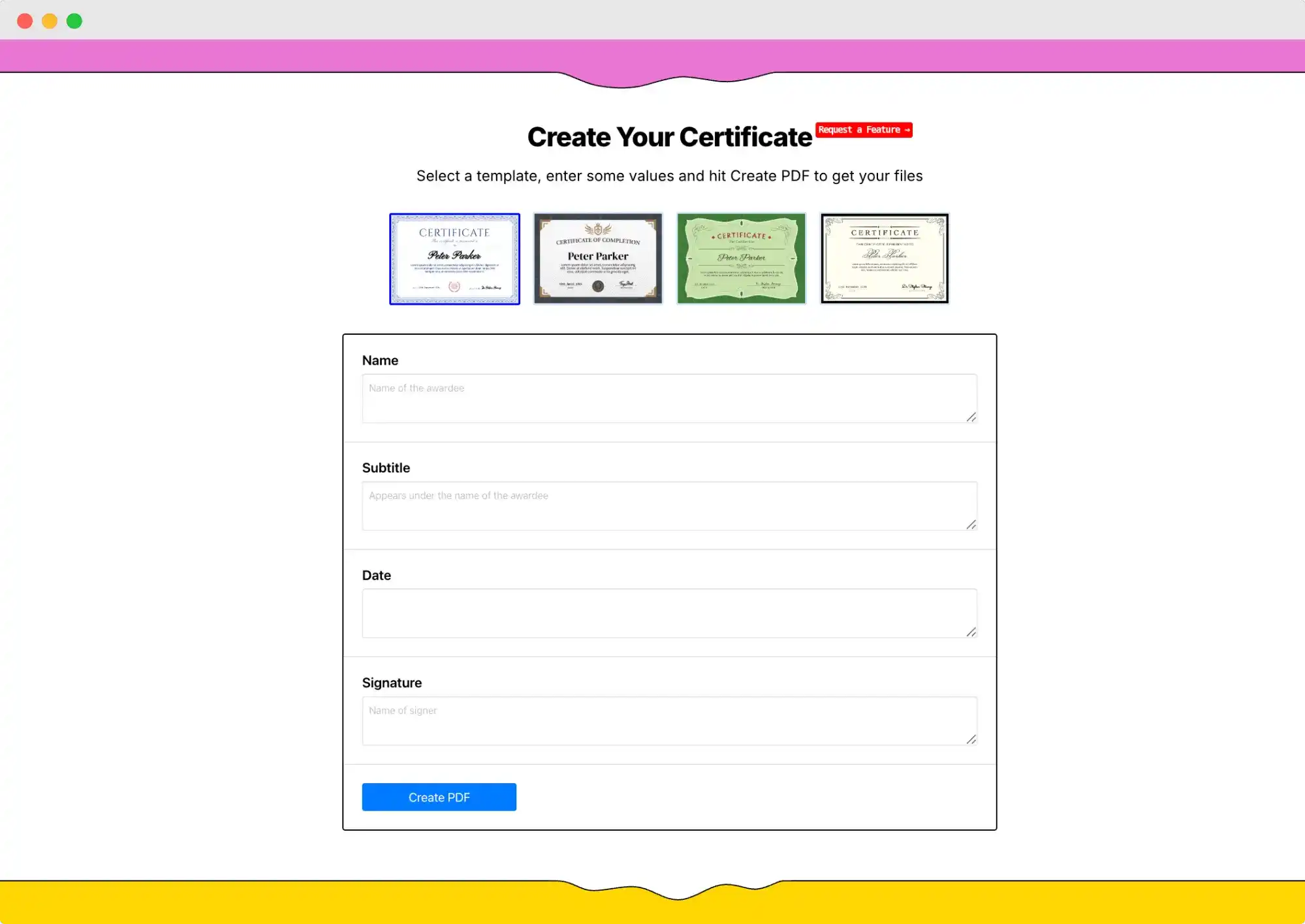
For quick asset creation, it’s efficient and reliable. You can generate your certificates one by one or by using API, Zapier, Airtable, Make and more. What Bannerbear doesn’t provide is a certificate-specific workflow with customization or analytics. That’s usually when teams start looking for Bannerbear alternatives.
Strengths:
Programmatic generating images and videos from a reusable template
PDF download is available in seconds and without sign-up
Single certificate creation is completely free
Where it falls short:
No baked-in certificate delivery
No recipient tracking or verification dashboards
Limited analytics for certificates inside existing workflows
If these gaps slow down content creation or reporting, here are the top Bannerbear alternatives worth testing in 2026.
Top Bannerbear alternatives for certificate creation in 2026
In 2026, certificate workflows require more than just visual assets—they demand secure delivery, automation, tracking and analytics.
Here's what to use instead of Bannerbear.
01 Certifier.io: best certificate maker overall
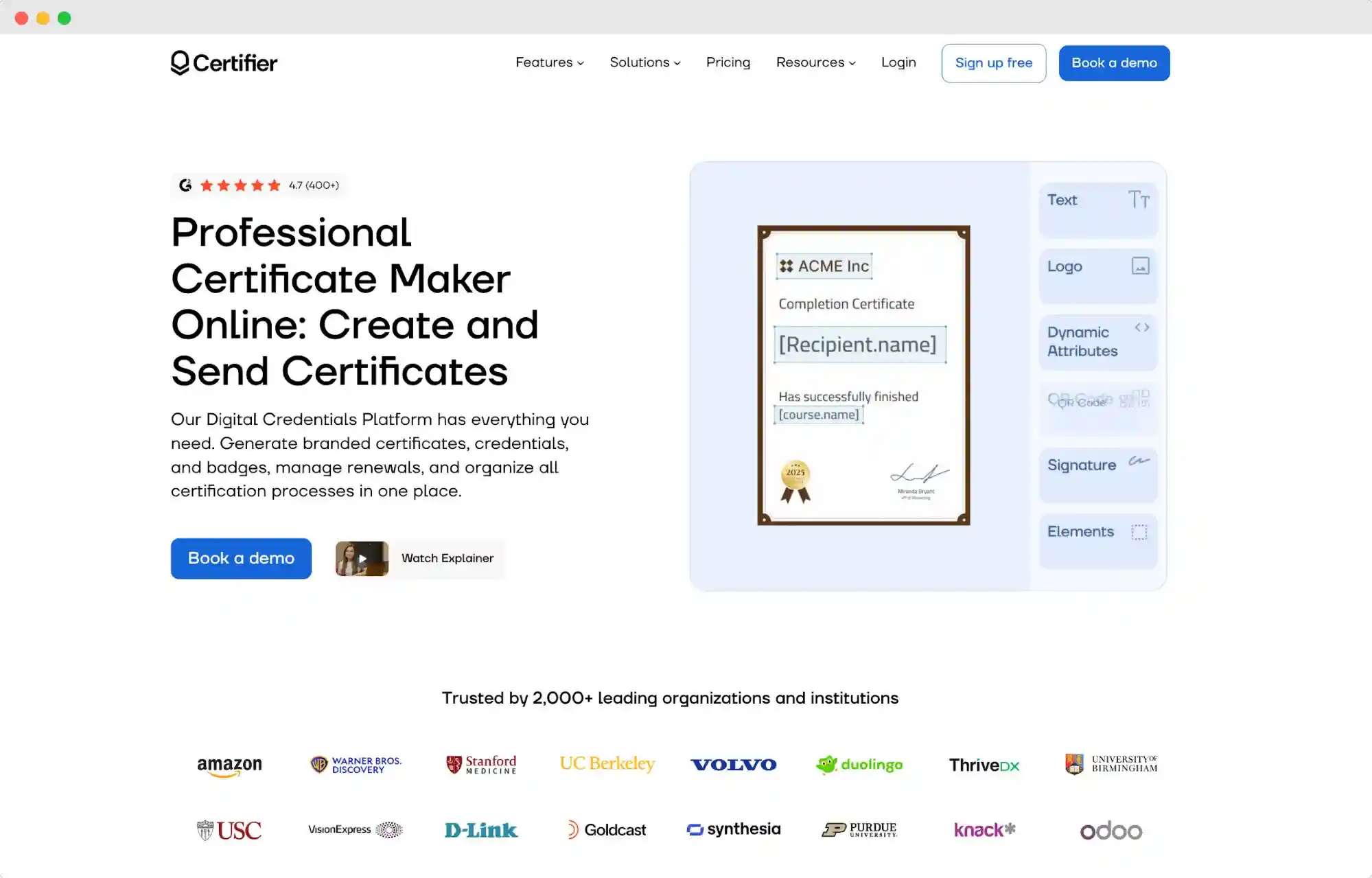
Certifier is an all-in-one platform for managing certificates. It streamlines every stage of the certificate process—from designing branded credential templates to issuing, sharing, verifying and analyzing performance.
It integrates seamlessly with your stack via REST API or no-code tools like Zapier, supports bulk operations and equips you with analytics and recipient insights.
Key features:
Drag-and-drop certificate template editor with support for both image and PDF generation
Bulk issuance via CSV, Excel or integrations with Google Sheets and other CRMs
Dashboard to track opens, downloads, shares and certificate verification activity
Supports expiration reminders and auto-renew notifications
Unique certificate digital wallet per recipient with one-click QR verification, issue reporting and verified issuer badge
How it works in 3 simple steps:
(1) Choose a certificate template, then customize static and dynamic elements for certificates (logos, signatures, recipient fields).
(2) Upload your recipient data and generate certificates in bulk, preview, then schedule or instantly issue via branded emails.
(3) Recipients access a secure digital wallet, where they can verify, view details, flag issues, download PDF and share on social media.
Pros:
Entire certificate lifecycle managed in one intuitive tool
Secure verification and analytics
Built for growth, yet friendly for non-technical users
Considerations:
Not designed as a creative design platform outside of certificates and digital badges
Pricing:
Free tier covers up to 250 certificates/year
Professional plan begins at $67/month—unlocking QR verification, branding, analytics and higher volume
For up-to-date details, visit Certifier’s pricing page.
Best for:
Event organizers, online educators, agencies and businesses aiming for fast, branded and trackable certificate distribution at scale.
Digital certificates created with Certifier become verifiable, shareable assets that build trust and drive engagement.
Create and Send Digital Credentials

02 Placid
Placid is one of the most versatile Bannerbear alternatives if your main focus is visual content creation rather than end-to-end credential management. Instead of spending hours on manual graphic design, users can rely on Placid’s automation to handle repetitive tasks like creating images or PDFs.
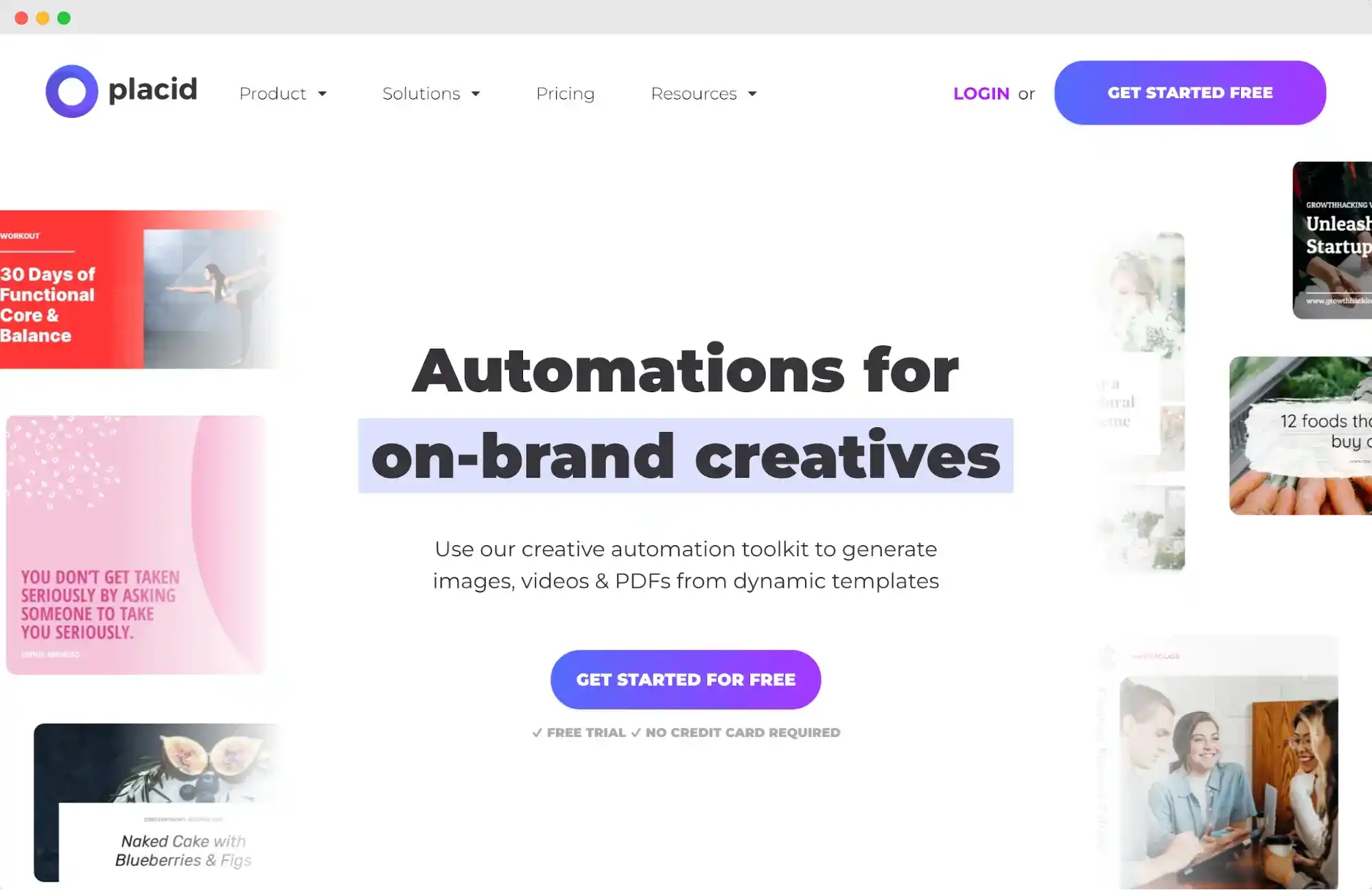
Key features:
Generate images, videos and PDFs via API requests, app or no code tools
Template editor with image templates and support for different resolutions
Auto-sizing and formats for social media
Considerations:
Focuses on visual content, not issuing or tracking
Credits determine cost per render
Not a certificate platform per se
Pricing:
Clear credits model with paid plan tiers (500 credits for $19), plus a free trial to test output speed and quality.
Best for:
Small teams that want creative production at speed with flexible outputs.
03 DynaPictures
DynaPictures is another strong pick among Bannerbear alternatives, designed to handle certificate creation. You can design one certificate at a time, but upon subscribing, you can also automate images in bulk while keeping a consistent style across outputs.
It appeals to companies that need a quick solution with basic integrations for automating image generation.
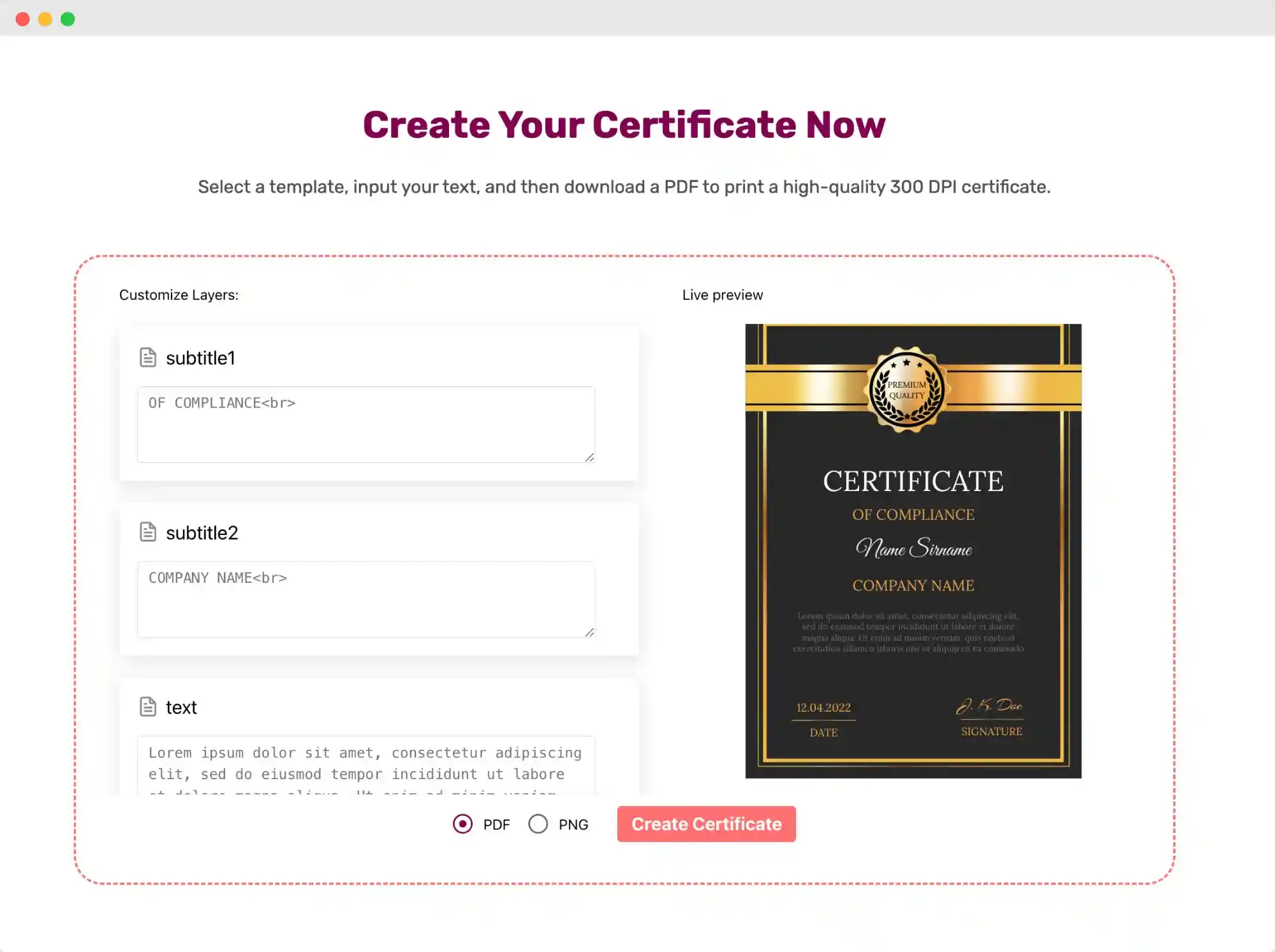
Key features:
Create and download certificates in PDF format
Customize certificate contents and appearance
Auto-resize text and aspect ratios for certificates
Considerations:
No verification features
No delivery or analytics tools
Very basic–yet user friendly interface
Pricing:
Free tier for light use. Paid plans start from $25 a month for 250 image generation credits.
Best for:
Marketing agencies that want to create images (but not necessarily certificates) on scale.
04 Canva
Canva is one of the most popular graphic design tools worldwide, with a library of design templates that cover everything from social media posts to certificates.
Compared to Bannerbear, Canva offers a more intuitive template editor and a huge library of reusable certificate templates that make it easier to create certificates without coding or API setup.
However, while it can create visually appealing content fast, it still lacks the certificate-focused features that Certifier provides, like certificate tracking, automation and data source integration.
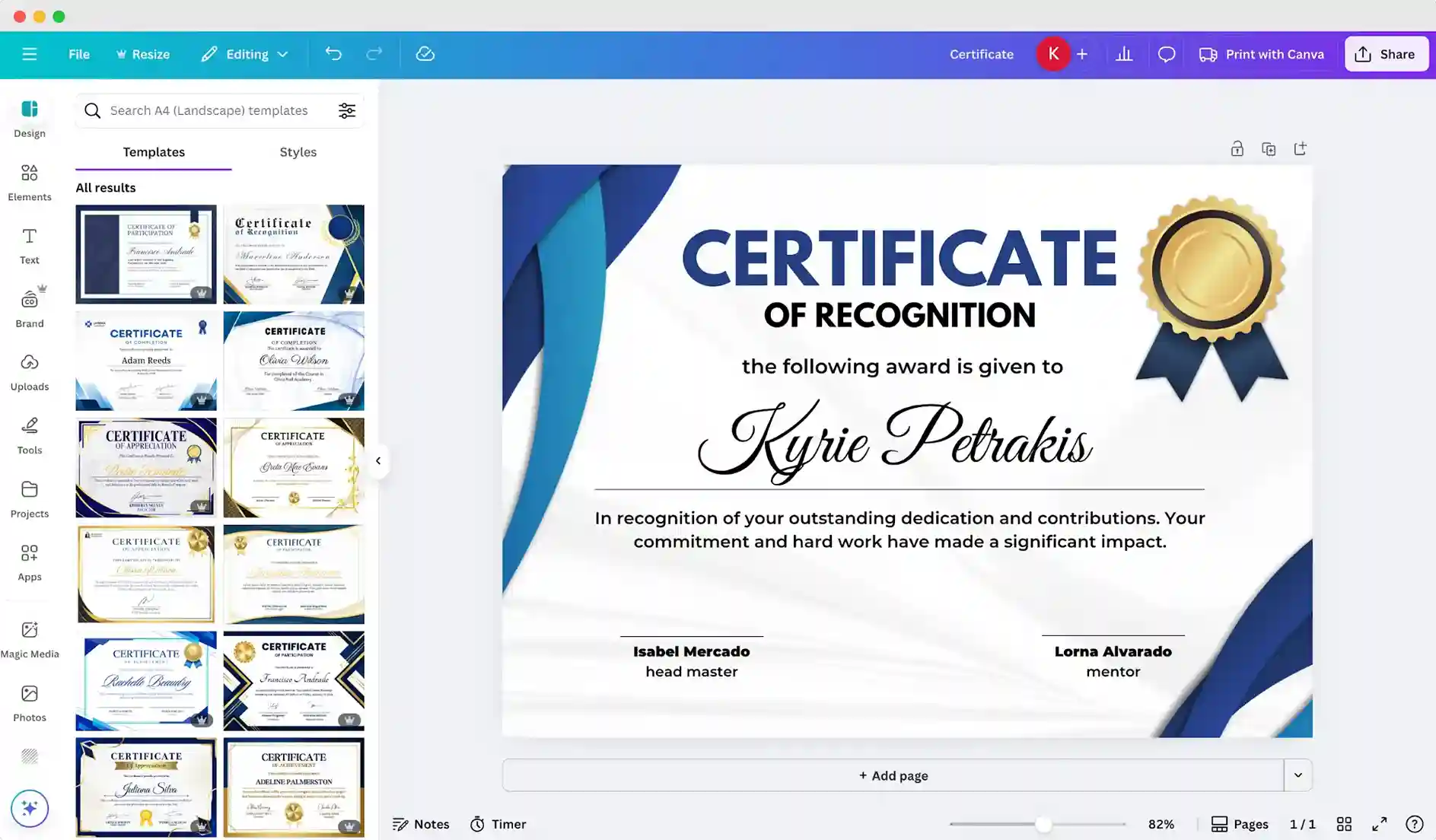
Key features:
Drag-and-drop template editor with thousands of certificate and design templates
Wide range of assets for content creation, including video features and image templates
Responsive templates for different resolutions and aspect ratios
Extensive library of templates for quick certificate creation
Considerations:
No automation for issuing or managing certificates
Lacks data source connection and API access for automated certificate workflows
Certificate templates are static and not linked to learner records
Pricing:
Canva offers a free plan, with paid plans starting at $15 per month for Pro access. Yearly plans are available at a discount.
Best for:
Small teams that need fast certificate designs but don’t require automation or tracking.
05 Abyssale
If you’re using endless ad formats and certificate layouts, Abyssale helps you stop resizing everything manually. With Abyssale intelligence, the tool adapts layouts automatically, turning a single design into responsive templates across channels. It’s designed for scale and collaboration, so your team can review and ship campaigns faster.
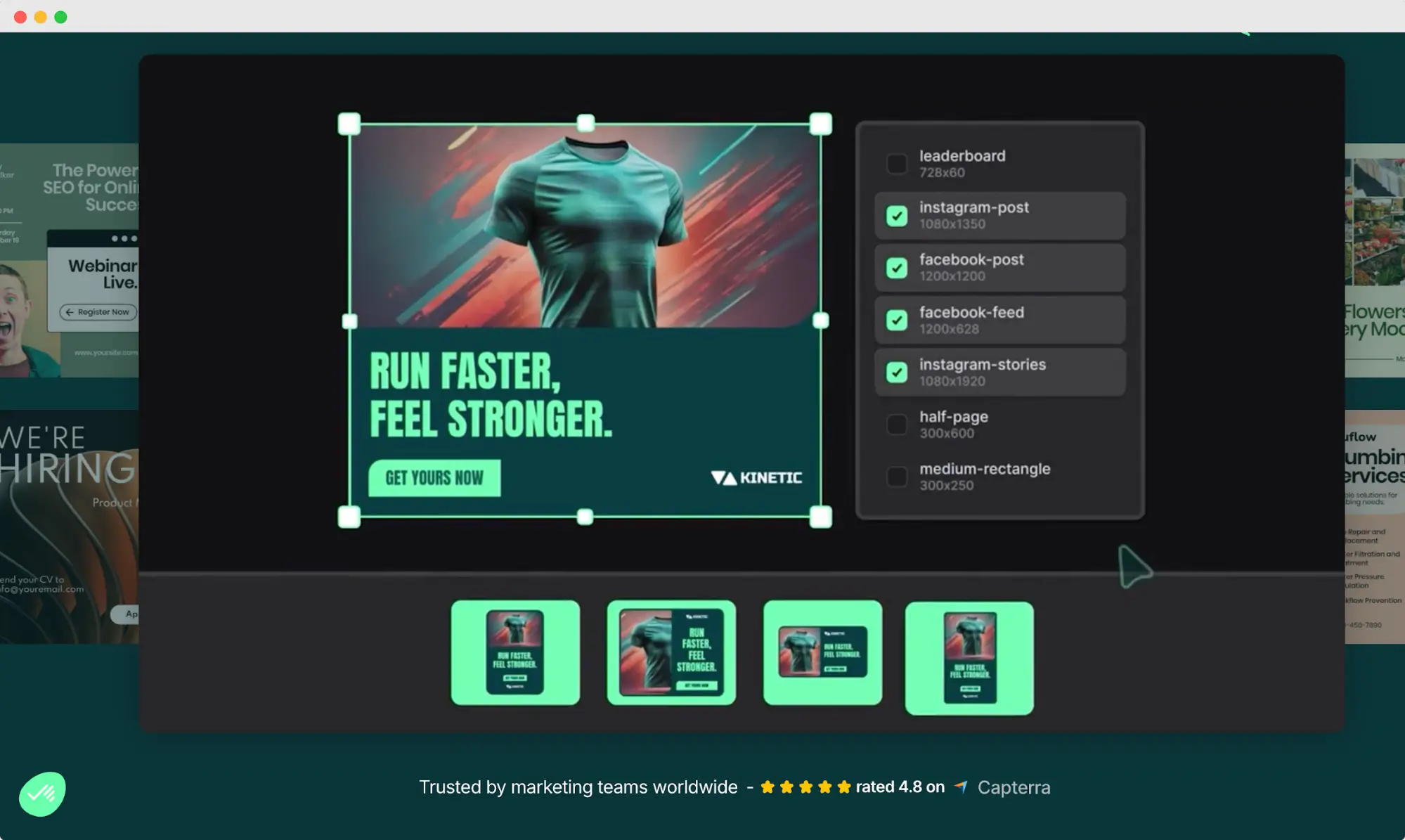
Key features:
AI-assisted layout for adapting visuals to multiple aspect ratios
API plus no code integrations with apps like Zapier and Make for existing workflows
Spreadsheet and dynamic URL generation for high volume image automation
Collaboration and approval flow for teams working on visual content creation
Considerations:
Certificate issuance and tracking still need other solutions
Designing certificates manually can be cumbersome
Per-seat pricing tied to image generation credits
Pricing:
Plans start from $12 per seat billed annually, with Pro and Suite tiers offering higher credits for larger teams. Free trial available.
Best for:
Growing teams that want to automate images at scale with responsive templates and collaborative review.
06 APITemplate.io
Some teams need more than visuals—they need structured docs too. APITemplate.io bridges that gap, letting you create images and PDF generation from HTML or JSON. Its focus on template editor flexibility makes it especially useful when you want reliable outputs plugged straight into your automation stack.
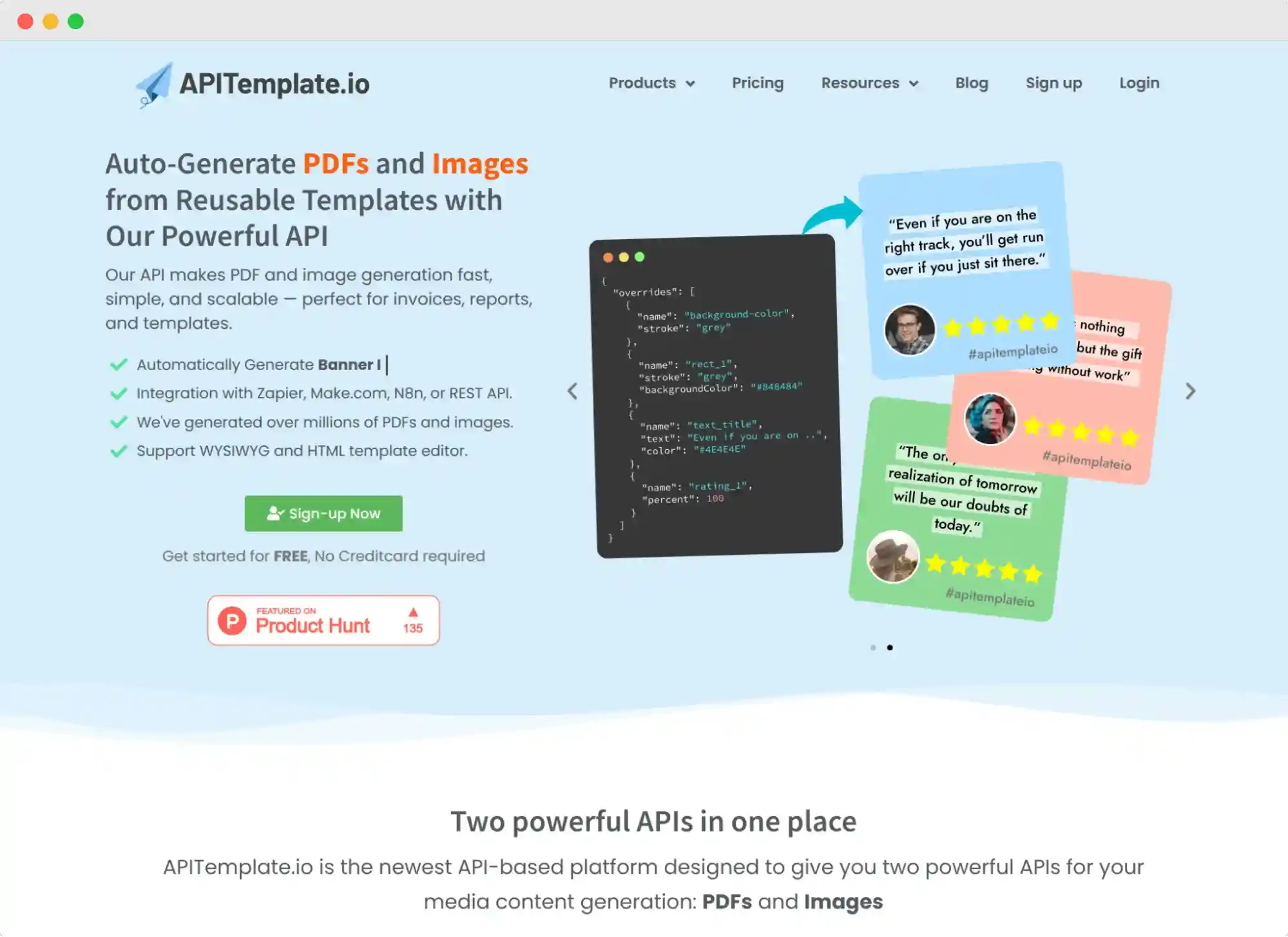
Key features:
HTML-to-PDF and image generation APIs for automated document workflows
WYSIWYG editor with support for reusable templates and dynamic data sources
Integrations with Zapier, Make and n8n
Clear documentation for developers to handle API requests smoothly
Considerations:
No certificate-focused issuing or analytics features
Complex layouts may require time to configure
Pricing:
Free plan with basic integration options available. Paid plans offer monthly and yearly options for image+PDF or PDF-only, with pricing based on API access and rendering volume.
Best for:
Developers and teams who want document-first automation for certificates.
Should you use Bannerbear for creating certificates?
If your main objective is image automation for promo graphics, social media posts, or video and image generation, Bannerbear offers a flexible template editor and a simple way to generate images at scale.
For a one-off certificate design, you could spin up an idea quickly with its image templates and export it without needing a complex setup.
But certificates are more than just visuals.
Most organizations need branding, analytics, verification and the ability to track engagement over time. While you could still use Bannerbear in existing workflows for visual content creation, it won’t replace a dedicated certificate platform. Instead, you’d need to connect Bannerbear to other solutions to handle issuing and verification, which adds cost and complexity.
If you’d rather avoid patching together multiple apps or dealing with API requests, Certifier is the smarter option.
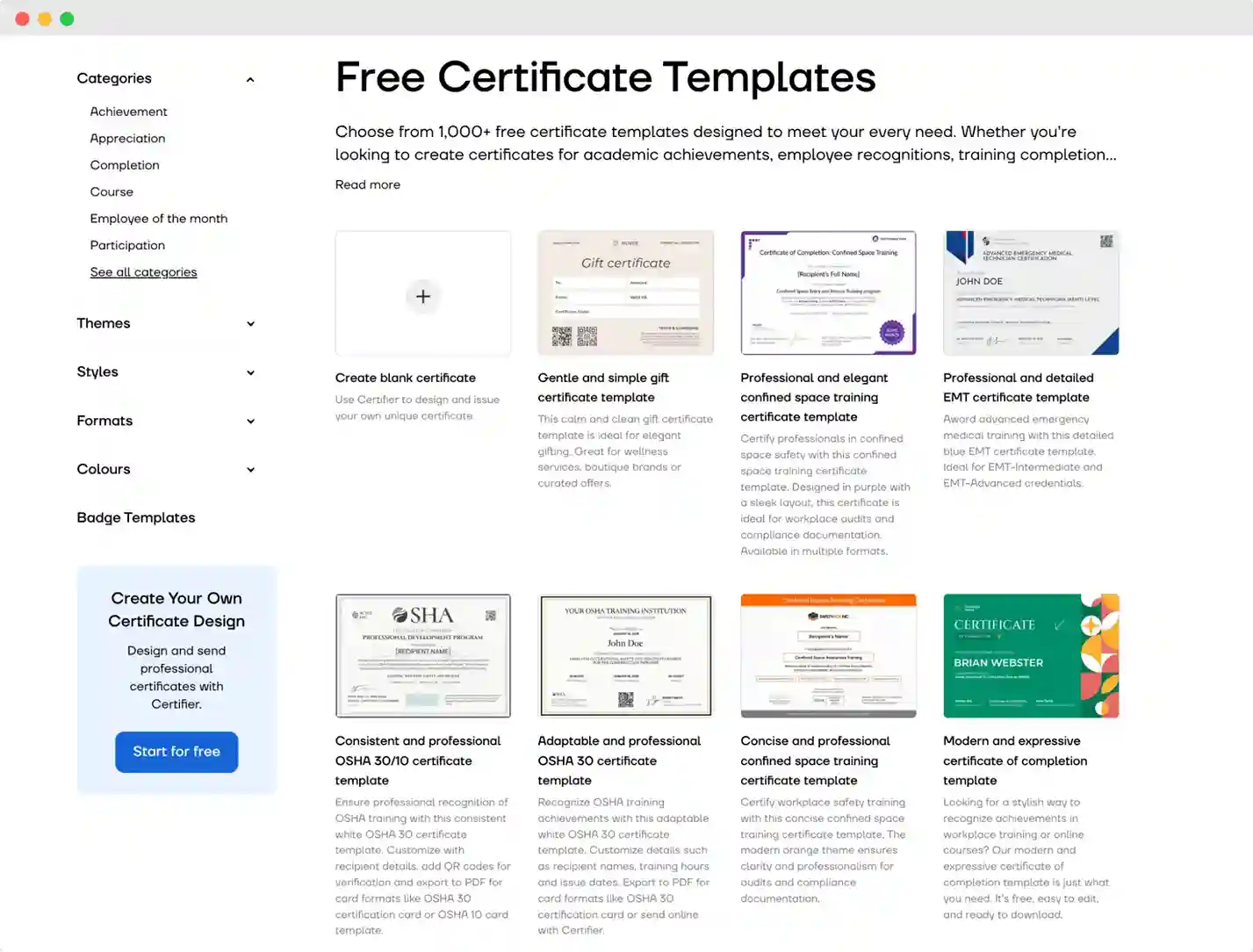
It combines design, distribution, and verification, making it one of the best alternatives to pure graphic design tools like Bannerbear when certificates are your focus.
And with hundreds of templates, you’re sure to find something that will appeal to you and your audience.
Want a deeper dive into certificate tactics before you switch tools? Start with How to create certificates online.
Bannerbear alternatives worth your test
Bannerbear is a reliable pick for image and video generation, but certificates call for more than visuals. Certifier closes the gap with a complete workflow—design, automation, distribution, verification and reporting—so you don’t have to piece together different tools.
Other solutions add useful angles, but when certificates drive trust, growth and compliance, Certifier stands out as the platform built for the job.
Ready to turn static designs into credentials that actually deliver value?
Sign up here and start issuing in minutes.
FAQ: Bannerbear alternatives for creating certificates
If you want to know more about how Certifier compares to Bannerbear and why it’s the best choice, check out the answers below.

- B2B SaaS marketing
- Digital Credentials
- Content Strategy
- On-page SEO
- Lead Generation
Head of Marketing
Aksen leads marketing at Certifier, bringing 7+ years of experience with global brands to position digital credentialing as a trusted solution for training providers and educational institutions.


